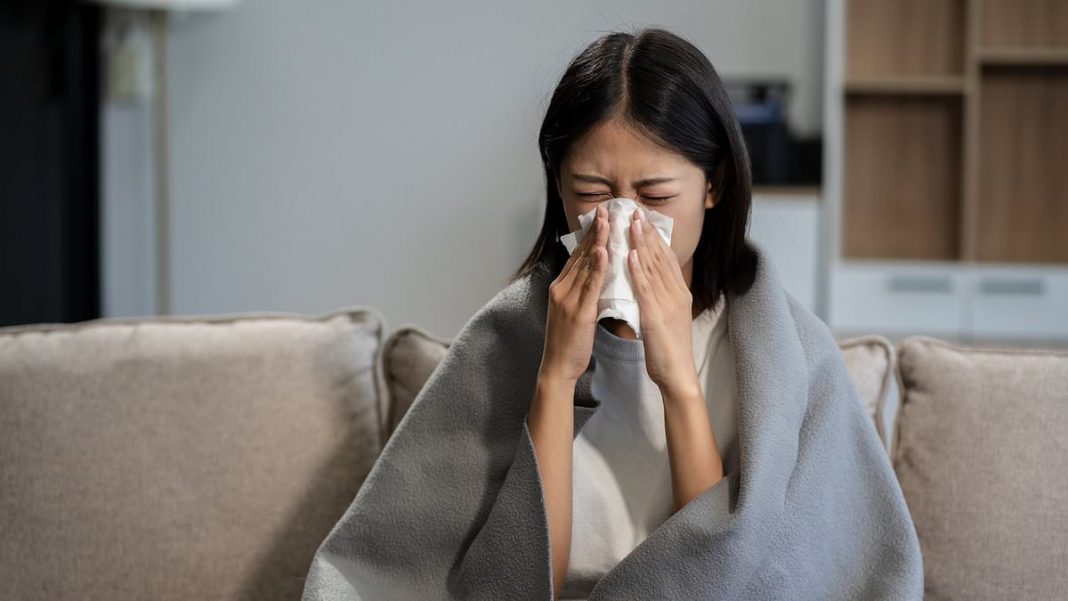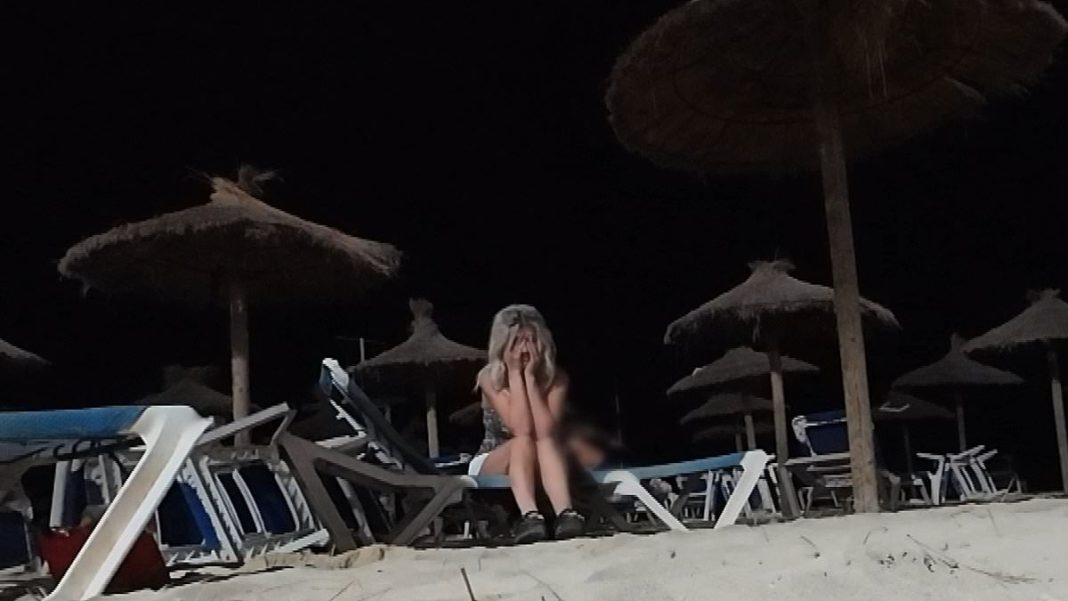Quadrupledemic warning: FOUR highly contagious winter bugs may hit UK,
Brits were today told to brace themselves for a ‘quadrupledemic’ amid an upsurge in norovirus cases.
Rates of the vomiting bug are up over 40 per cent in just a fortnight figures show, piling pressure on the health service before the season even gets into full swing.
Covid, RSV and flu will also bite in the coming weeks, despite them currently circulating at low levels, health experts predict.
Carolina Goncalves, superintendent pharmacist for Pharmica, said: ‘The risk of a “quadrupledemic” is quite real for some individuals.
‘Concurrent outbreaks of Covid, flu, RSV and norovirus during the colder months can trigger back-to-back illness and may be exacerbated by seasonal factors, increased indoor gatherings and weak immune systems in some individuals.’
Norovirus can show similar symptoms to Covid, with both viruses causing chills, fever and headaches.
Yet it also causes explosive vomiting and diarrhoea.
The stomach bug usually goes away on its own within two to three days.
But sufferers, who may also experience aching arms and legs, are advised to stay at home until 48 hours after their symptoms have stopped.
Rest and having lots of fluid are recommended by health chiefs.
In severe cases, however, some people may need to be hospitalised with the elderly and children most at-risk.
Figures released by the UK Health Security Agency (UKHSA) today revealed cases of the winter bug jumped 41 per cent in just a fortnight.
This is double the five-year average for the same two weeks.
Since the start of the 2024/2025 season, the number of norovirus outbreaks reported in hospital settings was also 37 per cent higher than the five-year average.
The bug is spread through close contact with someone who is infected; touching surfaces or objects that have the virus on them, and then touching the mouth; as well as eating food that’s been handled by someone with norovirus.
Regular hand washing is the best way to stop the spread.
Gauri Godbole, deputy director of gastrointestinal infections at the UKHSA, said: ‘We are heading into the winter season with norovirus levels higher than usual, and we expect norovirus to spread more in the coming weeks.
‘Recently, we’ve seen the biggest rise in cases in adults, especially those aged 65 and over.
‘To help reduce the spread of norovirus you can take steps to avoid passing the infection on.
‘If you have diarrhoea and vomiting, do not return to work, school or nursery until 48 hours after your symptoms have stopped and don’t prepare food for others in that time either.
‘If you are unwell, avoid visiting people in hospitals and care homes to prevent passing on the infection in these settings.’
As well as norovirus, Brits are also being sickened with other seasonal viruses.
UKHSA data shows cases of RSV, a common virus that can cause bronchiolitis in babies and children under two, have risen to 5.2 per cent in the last week.
Hospital admissions for the illness increased to 1.26 per 100,000 compared with 0.88.
Rates of flu also rose to 2.7 per cent, while Covid ‘remained stable’.
Covid hospitalisations decreased to 3.91 per 100,000 compared to 4.4 in the previous week.
Dr Jamie Lopez Bernal, Consultant Epidemiologist at UKHSA, said: ‘The three main respiratory infections remain at low levels, although we expect Covid and flu to increase in the coming weeks, with RSV already increasing, particularly among those aged 5 years and under.
‘Vaccinations are offered against flu, Covid and RSV and we urge those in eligible groups who are yet to get booked in to do so soon, ahead of the peak season to ensure they are protected heading into the winter months.
‘Our current surveillance shows that around 13 per cent of sequenced Covid cases are the XEC lineage however current information doesn’t suggest we should be more concerned about this variant.’









